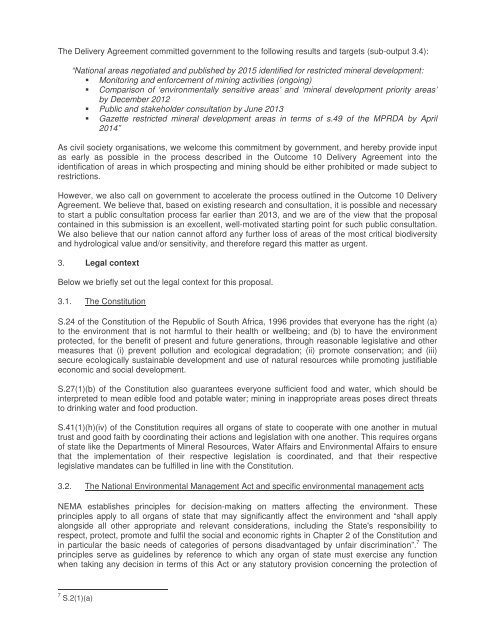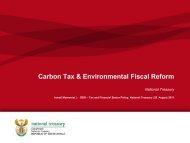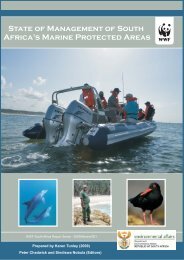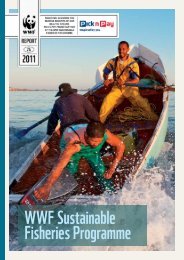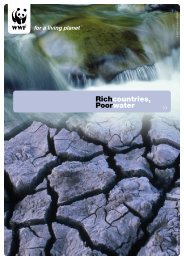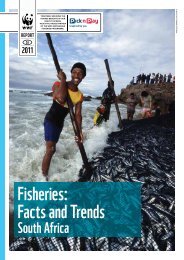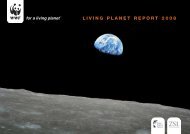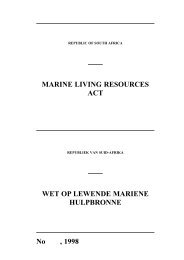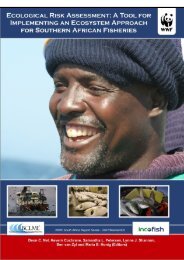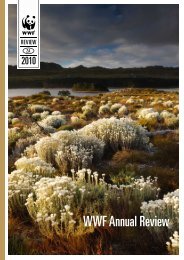CER Letter to Minister Shabangu re MPRDA s49 - 1 Feb 2011
CER Letter to Minister Shabangu re MPRDA s49 - 1 Feb 2011
CER Letter to Minister Shabangu re MPRDA s49 - 1 Feb 2011
Create successful ePaper yourself
Turn your PDF publications into a flip-book with our unique Google optimized e-Paper software.
The Delivery Ag<strong>re</strong>ement committed government <strong>to</strong> the following <strong>re</strong>sults and targets (sub-output 3.4):<br />
“National a<strong>re</strong>as negotiated and published by 2015 identified for <strong>re</strong>stricted mineral development:<br />
Moni<strong>to</strong>ring and enforcement of mining activities (ongoing)<br />
Comparison of ‘environmentally sensitive a<strong>re</strong>as’ and ‘mineral development priority a<strong>re</strong>as’<br />
by December 2012<br />
Public and stakeholder consultation by June 2013<br />
Gazette <strong>re</strong>stricted mineral development a<strong>re</strong>as in terms of s.49 of the <strong>MPRDA</strong> by April<br />
2014”<br />
As civil society organisations, we welcome this commitment by government, and he<strong>re</strong>by provide input<br />
as early as possible in the process described in the Outcome 10 Delivery Ag<strong>re</strong>ement in<strong>to</strong> the<br />
identification of a<strong>re</strong>as in which prospecting and mining should be either prohibited or made subject <strong>to</strong><br />
<strong>re</strong>strictions.<br />
However, we also call on government <strong>to</strong> accelerate the process outlined in the Outcome 10 Delivery<br />
Ag<strong>re</strong>ement. We believe that, based on existing <strong>re</strong>search and consultation, it is possible and necessary<br />
<strong>to</strong> start a public consultation process far earlier than 2013, and we a<strong>re</strong> of the view that the proposal<br />
contained in this submission is an excellent, well-motivated starting point for such public consultation.<br />
We also believe that our nation cannot afford any further loss of a<strong>re</strong>as of the most critical biodiversity<br />
and hydrological value and/or sensitivity, and the<strong>re</strong>fo<strong>re</strong> <strong>re</strong>gard this matter as urgent.<br />
3. Legal context<br />
Below we briefly set out the legal context for this proposal.<br />
3.1. The Constitution<br />
<br />
S.24 of the Constitution of the Republic of South Africa, 1996 provides that everyone has the right (a)<br />
<strong>to</strong> the environment that is not harmful <strong>to</strong> their health or wellbeing; and (b) <strong>to</strong> have the environment<br />
protected, for the benefit of p<strong>re</strong>sent and futu<strong>re</strong> generations, through <strong>re</strong>asonable legislative and other<br />
measu<strong>re</strong>s that (i) p<strong>re</strong>vent pollution and ecological degradation; (ii) promote conservation; and (iii)<br />
secu<strong>re</strong> ecologically sustainable development and use of natural <strong>re</strong>sources while promoting justifiable<br />
economic and social development.<br />
S.27(1)(b) of the Constitution also guarantees everyone sufficient food and water, which should be<br />
interp<strong>re</strong>ted <strong>to</strong> mean edible food and potable water; mining in inappropriate a<strong>re</strong>as poses di<strong>re</strong>ct th<strong>re</strong>ats<br />
<strong>to</strong> drinking water and food production.<br />
S.41(1)(h)(iv) of the Constitution <strong>re</strong>qui<strong>re</strong>s all organs of state <strong>to</strong> cooperate with one another in mutual<br />
trust and good faith by coordinating their actions and legislation with one another. This <strong>re</strong>qui<strong>re</strong>s organs<br />
of state like the Departments of Mineral Resources, Water Affairs and Environmental Affairs <strong>to</strong> ensu<strong>re</strong><br />
that the implementation of their <strong>re</strong>spective legislation is coordinated, and that their <strong>re</strong>spective<br />
legislative mandates can be fulfilled in line with the Constitution.<br />
<br />
3.2. The National Environmental Management Act and specific environmental management acts<br />
<br />
NEMA establishes principles for decision-making on matters affecting the environment. These<br />
principles apply <strong>to</strong> all organs of state that may significantly affect the environment and “shall apply<br />
alongside all other appropriate and <strong>re</strong>levant considerations, including the State's <strong>re</strong>sponsibility <strong>to</strong><br />
<strong>re</strong>spect, protect, promote and fulfil the social and economic rights in Chapter 2 of the Constitution and<br />
in particular the basic needs of categories of persons disadvantaged by unfair discrimination”. 7 The<br />
principles serve as guidelines by <strong>re</strong>fe<strong>re</strong>nce <strong>to</strong> which any organ of state must exercise any function<br />
when taking any decision in terms of this Act or any statu<strong>to</strong>ry provision concerning the protection of<br />
7 S.2(1)(a)


